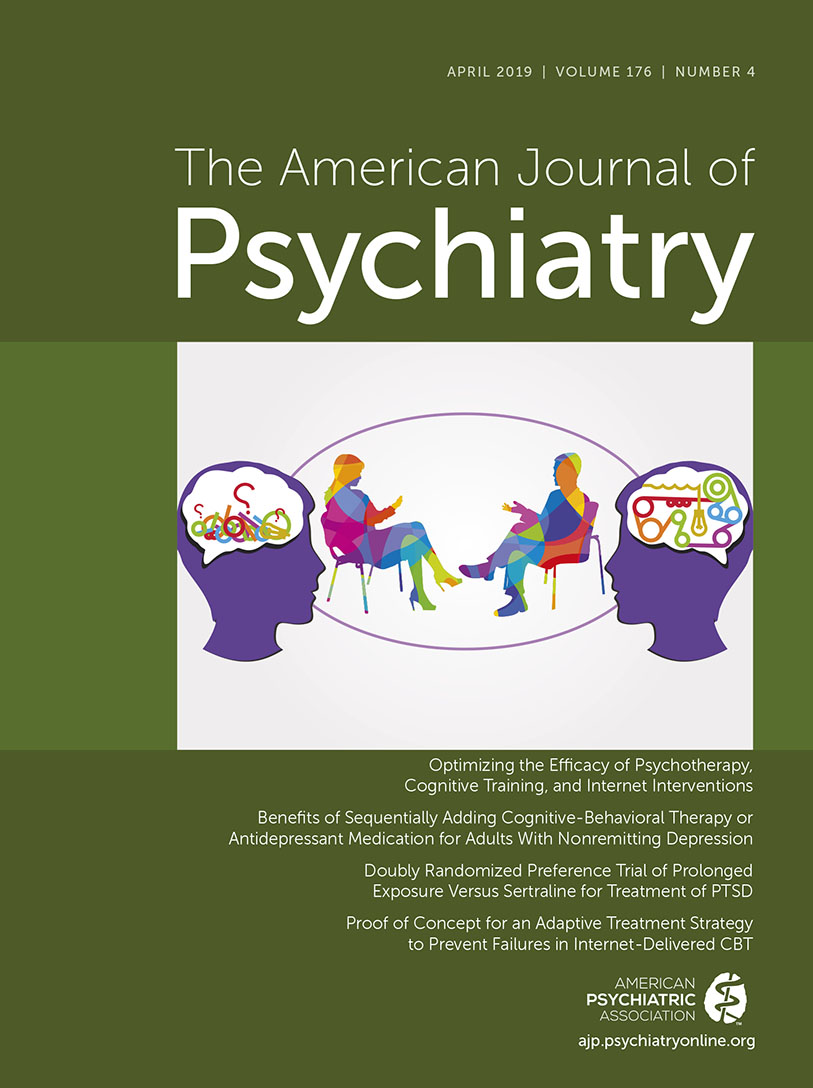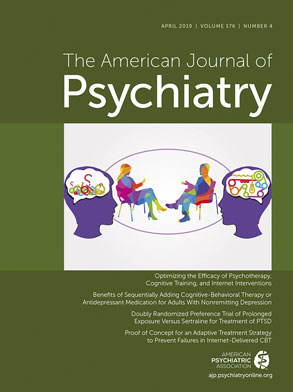Psychotherapy, cognitive training, and psychosocial interventions are crucial components of our psychiatric armamentarium, and this issue of the Journal informs our readers about new developments using these interventions to improve outcomes in patients with various diagnoses. By devoting this Journal issue to psychosocial interventions, my intent is not only to highlight the new findings reported here but also to emphasize the value of psychotherapy research and the significance of psychosocial interventions in enhancing our patients’ recovery. It is unfortunate that, for various reasons, psychotherapeutic approaches, including those using psychodynamic methods, are frequently underutilized in the treatment of our patients. It is also unfortunate that many of our residency training programs do not effectively teach the skills critical for successful psychotherapeutic intervention. It is my hope that by underscoring the importance of psychotherapy, this issue will motivate practitioners to ensure that their patients receive appropriate psychotherapeutic and behavioral interventions, encourage researchers to build on the potentially important findings presented here, and inspire educators to use this as a teaching and training resource.
Numerous studies have demonstrated the efficacy of disorder-specific therapies as well as therapeutic approaches that are effective across disorders. We know from published work, and from our own clinical experience, that the combination of an evidence-based psychotherapy with evidence-based pharmacotherapy is generally more effective than either treatment alone. This is especially true for patients who present with disabling and chronic symptoms that are closely linked to early-life adversity and trauma and are exacerbated by current life stressors. However, with all of our interventions, we are striving to improve outcomes, and each original research article in this issue deals with a different aspect of optimizing psychotherapeutic and cognitive training treatments for patients with various diagnoses, including schizophrenia, schizotypal personality disorder, depression, posttraumatic stress disorder (PTSD), and insomnia. The questions that are explored in these articles involve issues related to: 1) the optimal sequencing of psychotherapy and pharmacotherapy in relation to establishing combination treatment; 2) outcomes related to patient preference for psychotherapy or medications; 3) mechanism-informed cognitive, social, and perceptual training strategies for patients with schizophrenia; 4) the use of pharmacotherapy to augment cognitive remediation and social skills training strategies; and 5) methods to increase the efficacy of Internet-delivered cognitive-behavioral therapy (CBT) by preventing treatment failures.
In addition to the original research articles, we are grateful to have four insightful editorials from scholars in the fields of psychotherapy and cognitive training research. Dr. Steven Hollon, a psychologist from Vanderbilt University, is an expert in the interaction between cognitive and biological processes in the pathogenesis and treatment of depression. He addresses issues in the article by Dunlop et al. (
1) that are relevant to the sequencing of combined treatment strategies for nonremitting depression, and he also discusses the article by Zoellner et al. (
2) that addresses how patient preference for psychotherapy or medications is related to outcome in the treatment of PTSD. Importantly, for both depression and PTSD treatment, Dr. Hollon considers the roles of psychotherapy and medication in relation to the need for long-term treatment and relapse prevention (
3).
Dr. Sophia Vinogradov, a psychiatrist from the University of Minnesota, is a prominent researcher focusing on developing new training methods to remediate mechanisms underlying the cognitive dysfunctions that occur in patients with schizophrenia. In her editorial (
4), she discusses the implications of the article by Best et al. (
5) that compares the efficacy of executive function training to that of perceptual processing training in improving cognition and function in patients with schizophrenia. Her insights also provide a framework for how to conceptualize the use of personalized treatment approaches with these two different methods.
Dr. Susan McGurk is a highly accomplished neuropsychologist from Boston University who focuses her work on cognitive remediation and skills training in severely ill patients. She discusses the article by McClure et al. (
6), in which it is demonstrated that the α
2A-agonist guanfacine augments the efficacy of cognitive enhancement therapy in patients with schizotypal personality disorder. She explains the potential of these positive findings in the context of other work with guanfacine, some of which has not been as successful (
7).
Finally, Dr. Meredith Rumble and Dr. David Plante, both from the University of Wisconsin, provide insights into the article by Forsell et al. (
8) on developing a strategy to reduce treatment failures when using Internet-based CBT for insomnia. Dr. Rumble is an accomplished psychologist focused on using and studying CBT for the treatment of sleep disorders, and Dr. Plante is a psychiatrist directing his research efforts at the interface between sleep alterations and psychiatry. In their editorial (
9), Drs. Rumble and Plante highlight the bidirectional interactions between insomnia and psychiatric illnesses, the literature supporting the use of Internet-based interventions, and the unique and potentially useful contributions of the Forsell et al. article.
This issue of the Journal underscores the importance of current efforts and future support for research aimed at improving psychotherapy and psychosocial interventions. It is my hope that it provides you with a valuable resource for your clinical, research, and teaching activities.

